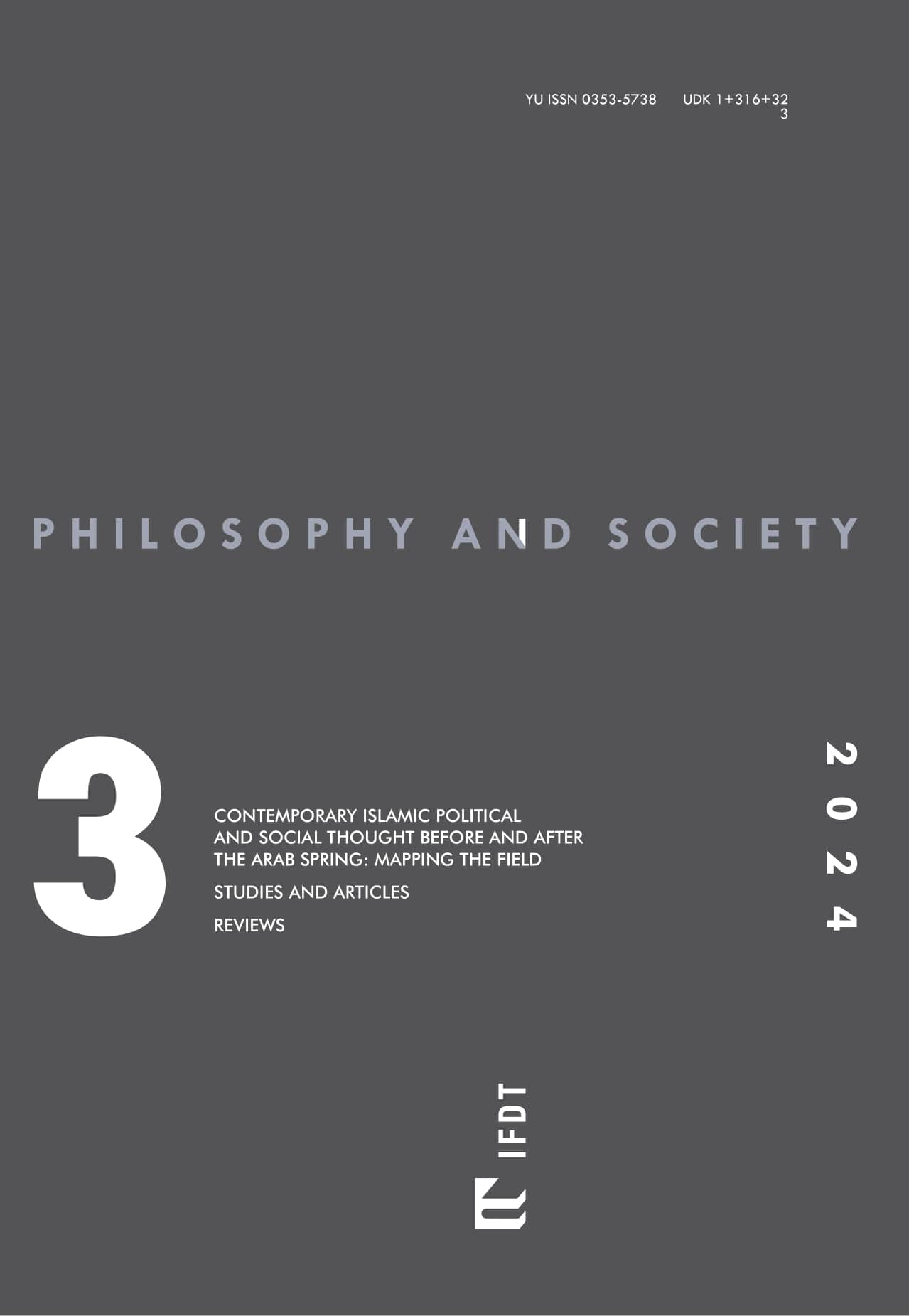Reform and Resurgence: The Transformation of Islamic Movements in the 21st Century
Reform and Resurgence: The Transformation of Islamic Movements in the 21st Century
Author(s): Jaan IslamSubject(s): Politics / Political Sciences, Political Theory, Theology and Religion, Islam studies, Politics and religion, Sociology of Religion
Published by: Institut za filozofiju i društvenu teoriju
Keywords: Post-Caliphate Islam; Muslim revival movements; decolonial thought; Jihad; Shari’a
Summary/Abstract: This paper studies the development in the thought and praxis of Islamic movements that aim to revive a political system governed by Islamic law. Post-Caliphate Islamic movements – the subject of the current study – have undergone recent reforms in thought, approach, and even branding since the Arab Spring. Notwithstanding the movements’ legal and theological diversity, the author argues that they share common features of reform characterized by (a) appeal to public opinion and grassroots work; and (b) willingness to work with groups outside their movement. These reforms were shaped in tandem with and in reaction to the War on Terror, the Arab Spring, and the Taliban’s victory in Afghanistan. The author argues that these changes gave rise to dynamic reform in the latest generation of Islamic movements, leading to substantive revisions in their approach (manhaj) to achieving Islamic change. Despite tightening proscription and censorship, the author argues that the fruit of these reforms has been a resurgence in the form of highly efficient and creative collaboration between movements. Examples studied include collaboration between the Muslim Brothers (MB) and Hizb ut Tahrir in the West, and between former-al-Qaeda and MB affiliates in Syria. The author estimates these strategies – following a period of political failure and internal skepticism – have precipitated a resurgence that makes the future of Islamic movements highly potent, despite resulting in a dilution of each group’s identity and possible decline in membership. As a result of this trajectory, this study argues for the need to theorize contemporary Islamic movements beyond historical categories that have fossilized in Western academia, and often do not capture the dynamic, fluidity and comprehensiveness of Islamic struggle. This study utilizes a mixed methodology, including archival analysis and intellectual genealogy.
Journal: Filozofija i društvo
- Issue Year: 35/2024
- Issue No: 3
- Page Range: 585-606
- Page Count: 22
- Language: English

